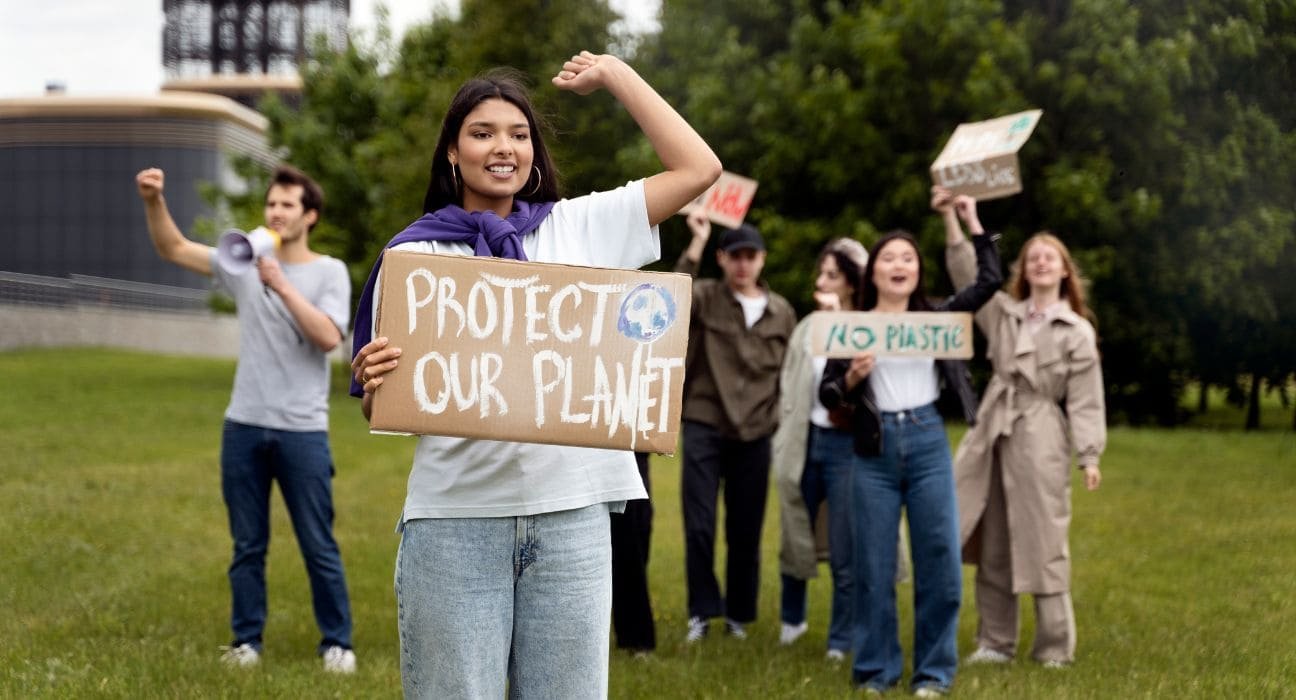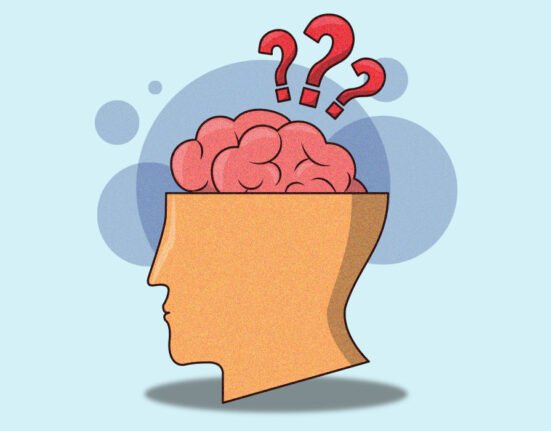Social activists are individuals who promote systematic and effective changes in society. They often focus on issues like environmental justice, human rights, and social equality. One of the other important concerns is mental health and social activists play a significant role in the field of mental health by raising awareness about mental health, advocating for support systems, encouraging self-care, providing community support and influencing policy changes.
Activists bringing change in the field of mental health:
Social activists have contributed to the evolution of the field of mental health and have paved the way for its development. They are making a real difference in the world of mental health with their efforts. By helping people feel more comfortable discussing mental health issues, they are promoting earlier intervention and better outcomes.
Activists are also working to make sure everyone has access to the resources they need to stay mentally healthy. They’re trying to highlight the importance of mental health, reducing stigma, promoting self-care, creating a sense of community and providing alternative forms of healing such as art therapy, and mindfulness practices. They’re even fighting for policy changes that make mental healthcare more affordable and accessible.
Here are some social activists who brought change to mental health awareness:
- Sally Zinman: She was born in 1937 and diagnosed with anorexia as a young kid. But, later, she turned out to be diagnosed with schizophrenia. Her doctor physically abused her and put her in a cellar-like structure for 2 months. She met people with similar kinds of traumatic history and this caused her to become an activist in the “militant madness movement”. She spent 30 years of her life forming several mental health organizations and received ‘Substance Abuse and Mental Health Services Administration’ (SAMHSA) Award in 2016, at the age of 70.
- Clifford Beers: He was born in 1876 and along with him, all four siblings suffered from psychiatric problems. He was admitted to a private mental institution where he was diagnosed with paranoia and depression. He is the author of the book ‘A Mind That Found Itself’ published in 1908, in which he discussed about his sufferings as a patient. He is the founder of the American Mental Health Movement and he started the first outpatient mental health clinic in the U.S.
Challenges faced by the social activists:
- Lack of clear definitions: The terms advocacy and activism were generally not defined properly in the research studies.
- Limited access to resources: Activists try to make development in the field of mental health but, they face the problem of limited access to resources, including funding and support in low- and middle-income countries.
- Stigma and discrimination: Stigma and discrimination from society, families and even healthcare providers prevail in the field of mental health which acts as an obstacle in the work of the activists.
- Burnout and self-care: Activists are usually busy bringing change in the society related to mental health so; they often neglect their mental health and wellbeing.
- Power dynamics: The healthcare providers and policymakers compete with the activists to navigate power dynamics.
- Lack of diversity and representation: Representation of all diverse perspectives and experiences can’t be done by the activists all alone.
- Funding and sustainability: Financial aid is one of the important resources, lacking in which can prove to be a significant challenge for the activists.
- Measuring impact: Activists may contribute in many ways to mental health but, they also may face challenges measuring the impact of their efforts.
Impacts of the challenges and coping strategies:
Social activists while working in the field of mental health may face several challenges that can impact their work and effectiveness. Some of the common impacts of the challenges and how activists may cope with them are the following:
Stigma and Misconceptions: Mental health is still a stigma and there are many misconceptions about it in many parts of our society. This acts as a resistance to the working of socialists and makes their efforts less effective.
Coping Strategy: One of the effective ways to reduce the stigma and clear the misconception is to educate and aware people of mental health.
Resource Constraints: Lack of funding aids can restrict the scope and impact of mental health activism.
Coping Strategy: Activists can solve this problem by seeking partnerships with organizations or individuals who can provide resources or funding.
Resistance to Change: Social activists experience much resistance to introducing new approaches or reforms from policymakers, healthcare providers, or traditional cultural beliefs. If the new approaches aren’t included then, it doesn’t bring the required update in the policies related to mental health.
Coping Strategy: The alliances that they made while engaging in advocacy and lobbying can be useful. To reduce this resistance, activists can take the help of influential stakeholders or use media and public campaigns to create pressure for change.
Burnout and Self-Care: Activists may experience many issues while working in mental health activism which can be emotionally draining.
Coping Strategy: Emotional exhaustion can be dealt with through self-care practices including regular breaks, seeking peer support or therapy, maintaining boundaries between work and personal life, and engaging in activities that promote mental well-being.
Measurement of Impact: The nature of mental health outcomes is intangible so, it can become difficult for the activists to demonstrate the impact of mental health activism.
Coping Strategy: To illustrate the impact of mental health activism effectively, activists may use qualitative data, personal stories, and case studies.
Barriers and stigma:
Social activists encounter various barriers and stigmas while working in the field of mental health. Some of them are mentioned below:
- Societal Stigma: Society plays a huge role in mental health and related issues due to misconceptions, fear, and negative stereotypes. It prevents open discussion about mental health issues, discourages individuals from seeking help, and creates a hostile environment for advocacy efforts.
- Institutional Stigma: Institutions such as healthcare systems, workplaces, and educational institutions may also contribute to stigmatizing mental health through discriminatory practices, inadequate mental health services, or lack of support for those experiencing mental health issues.
- Self-Stigma among Activists: Sometimes activists may indulge in internalizing societal attitudes towards mental health, leading to self-stigma and reluctance to seek support or acknowledge their own mental health needs.
- Legal and Policy Barriers: Legal and policy frameworks are supposed to make the processes involved in mental health unbiased. But, they may lack adequate protections for individuals with mental health conditions, leading to discrimination in areas such as employment, housing, and healthcare.
- Cultural and Religious Stigma: The stigma and barriers related to mental health are very much influenced by the cultural beliefs and religious practices, they seek help or support.
Intersectionality and diversity:
Intersectionality and diversity describe the overlapping identities and experiences so, they are crucial considerations in the field of mental health.
Intersectionality:
- Understanding Multiple Identities: Intersectionality explains how individuals having multiple social identities (e.g., race, ethnicity, gender, sexual orientation, socioeconomic status) can intersect and interact with each other, shaping their experiences of mental health and mental illness.
- Impact on Mental Health: Individuals can experience discrimination and stigma as they belong to different identities. For example, individuals belonging to different race or colour may face discrimination due to societal prejudice and systemic inequalities.
- Complexity of Experiences: Intersectionality explains how experiences of mental health can turn complex because of different identity lenses. For instance, an individual from a low economic status experiencing depression will face different problems as compared to an individual from a high economic status.
- Advocacy and Awareness: Mental health activists have to adopt such an approach to advocate for policies and services which is intersectional. So, that it considers the diverse needs of marginalized groups. This involves addressing barriers to care, promoting culturally competent mental health services, and challenging stigma within communities.
Diversity in Mental Health:
- Cultural Competence: Diversity of cultural beliefs and practices plays an important role in shaping individuals’ experiences and perceptions of mental health.
- Language and Communication: language is the most important medium required for services in mental health. So, people speaking every kind of language should have the accessibility to services for mental health.
- Representation: There are several parts of mental health organizations like research, policy-making, and mental health professions. So, there should be representation of diverse communities in these areas. It will promote diversity in the field of mental health.
- Tailored Interventions: The interventions must be diversity-friendly i.e. inclusion of community-based approaches, peer support networks, or culturally specific therapies is needed.
Strategies for bringing change :
- Raise Awareness and Reduce Stigma: There are different mediums for raising awareness like public campaigns and education programs. Public campaigns will aware people of mental health and education programs will reduce the stigma through school curricula which will promote understanding and empathy as well.
- Advocate for Policy Change: Advocate for legislative changes can bring a lot of improvement in the field of mental health by updating the policies. The new policies can focus on identifying the gaps and barriers in previous mental health policies and then updating them.
- Promote Access to Services: After making people aware of mental health, we need to make sure that they’re getting access to the needed mental health services. It will help in building the trust and faith of people in mental health services. It can be done through expanding mental health services and taking telehealth initiatives.
- Support Diverse Communities: Ensuring that mental health services are culturally sensitive through cultural competence and language access will meet the needs of diverse communities.
- Empowerment and Support: To build a strong community of mental health it takes the support of peers, networks and mentorship.
- Research and Innovation: Research is important for developing innovative treatments and interventions. So, the use of advanced technology and appropriate research methods is necessary.
- Address Social Determinants of Health: The social determinants of mental health, such as poverty, racism, sexism, and discrimination must be addressed. And policies must be made to address these issues.
- Reduce Mental Health Disparities: Initiatives must be taken to reduce mental health disparities among marginalized and underserved populations.
- Professional Development and Training: Having a developed, skilled and well-trained workforce in mental health services is really important. Also, initiatives must be taken for peer and family support.
Take Away
Social activists are individuals who advocate for changes in society, often focusing on issues like environmental justice, human rights, and social equality. One of the other important concerns is mental health and social activists play a significant role in the field of mental health by raising awareness about mental health, advocating for support systems, encouraging self-care, providing community support and influencing policy changes.
Social activists are the promoters of changes in the society. They try to find out the concerning issues in society like environmental justice, human rights, and social equality and then work on them. Mental health is one of the important concerns for social activists and they play a very important role in raising awareness about mental health, advocating for support systems, encouraging self-care, providing community support and influencing policy changes.
While making efforts in the field of mental health, activists have to face many challenges like limited access to resources, stigma and discrimination, emotional burnout, lack of diversity and representation, funding issues and less effective impact of their efforts. So, coping with these challenges often requires a multi-faceted approach involving advocacy, education, collaboration, self-care, and resilience. There’s a need to address the challenges strategically while making meaningful contributions to improving mental health awareness, services, and support in their communities.
There are many stigmas and barriers related to mental health like societal stigma, Institutional stigma, legal and policy barriers, and cultural and religious stigma. But, social activists are challenging these stigmas at multiple levels and advocating for systematic change. Intersectionality and diversity are necessary to understand and address mental health disparities. Then mental health activists and professionals can work towards more inclusive, accessible, and effective mental health care for all individuals, regardless of their diverse identities and backgrounds.
The strategies for change in mental health include policy changes, access to mental health services, support to diverse communities, research and innovation, address of social determinants of health, reduction in mental health disparities and most importantly professional development and training.
FAQs
1. Who are social activists?
Social activists are individuals who promote systematic and effective changes in society. They often focus on issues like environmental justice, human rights, and social equality.
2. What is the role of social activists in the field of mental health?
Mental health is one of the important concerns for social activists and they play a very important role in raising awareness about mental health, advocating for support systems, encouraging self-care, providing community support and influencing policy changes.
3. What challenges do they face while working in the field of mental health?
While making efforts in the field of mental health, activists have to face many challenges like limited access to resources, stigma and discrimination, emotional burnout, lack of diversity and representation, funding issues and less effective impact of their efforts.
4. What are the strategies to overcome the challenges and contribute to the development of the mental field?
The strategies for change in mental health include policy changes, access to mental health services, support to diverse communities, research and innovation, address of social determinants of health, reduction in mental health disparities and most importantly professional development and training.
References +
- https://www.nationaldaycalendar.com/pop-culture-lifestyle/5-advocates-who-influenced-modern-mental-health-care
- https://www.quora.com/What-challenges-do-activists-face-when-trying-to-bring-about-social-changeWhat challenges do activists face when trying to bring about social change? (n.d.).
- Quora. https://www.quora.com/What-challenges-do-activists-face-when-trying-to-bring-about-social-change













Leave feedback about this